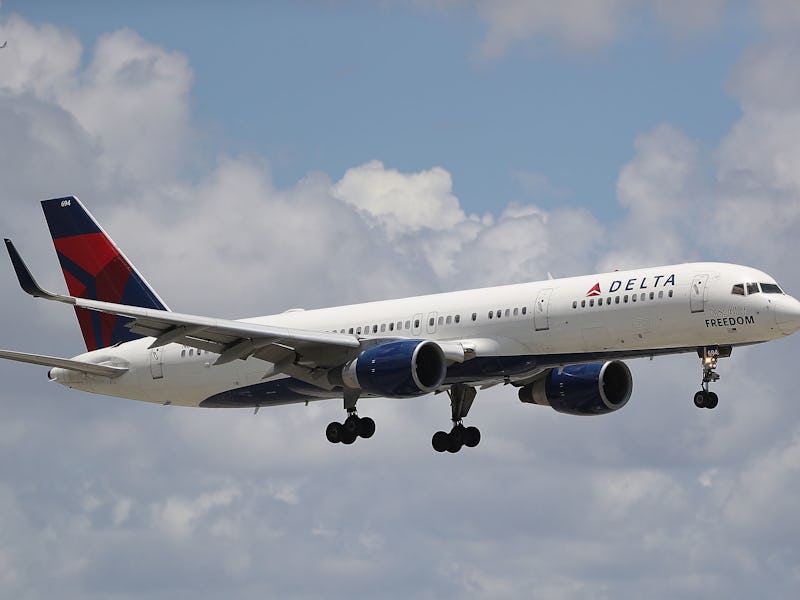Delta Is Much Better at Overbooking Than Other Big Airlines

Overbooking airplanes can lead to a P.R. nightmare, as United Airlines saw when a video of a ticketed passenger being dragged off a flight went viral — but one major airline does it better than the rest.
Delta Airlines has figured out a system in recent years to dramatically reduce the number of involuntary denied boardings, even while reaping the economic benefits of overbooking flights as much as everyone else. Starting around 2011, the airline has often had passengers submit information in advance about how much it would take for them to go on a later flight. When Delta needs to make room, it offers buyouts to passengers starting with the lowest bidders. The airline usually finds more than enough people willing to stick with their bids, in the process finding the cheapest solution to overbooking and avoiding last-minute price battles that can be time-consuming and emotional.
In a recent government report, Delta was by far the least likely of the large national airlines to block a ticketed passenger from a flight in an “involuntary denied boarding.” Over 2016, Delta forced an average of only 0.1 customers to leave a flight involuntarily, out of every 10,000 overall flyers. This is compared with the 0.43 for United Airlines, 0.64 for American, and 0.99 for Southwest.
Delta has gotten much better at this since instituting the new passenger bidding system. From 2010 to 2016, the airline decreased the frequency of involuntarily bumped customers by about two thirds. 2011 is also the year that regulators doubled the amount that must be paid to involuntarily bumped passengers, which likely affected the results as well. Other large airlines also improved over this period but not as much as Delta.
All told, Delta’s system means that those passengers who most need to get where they’re going can almost always do so, because there will be a large-enough group of more leisurely flyers who have assigned that time a lower value by making a lower bump-bid.
Now there is, of course, something perverse about a game theory setup in which a wide swathe of society all competes to see who will accept the fewest free AirMiles in exchange for missing Christmas morning with the family. Especially when it’s inevitable that rich people will be less drawn to freebies than poor people.
Still, perhaps that quiet controversy is better than what’s happening to United right now.
Delta’s way may be cold — but it works.